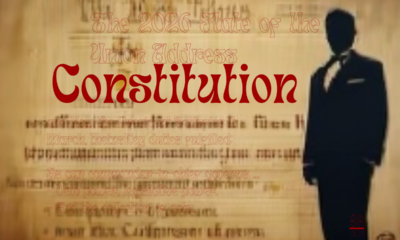News
Study: More than half of unemployed men in their mid-30s have criminal records

More than half of unemployed young men in the United States, including thousands on Long Island, have some sort of a criminal record by their mid-30s, according to new research.
An estimated 64% of jobless males were found to have been arrested at least once by the time they turned 35, according to research released last week by the RAND Corporation. Of that same group, 46% were found to have been convicted of a crime and a little over 20% had been incarcerated.
Researchers at RAND studied the effects a criminal record has on men in America, publishing their results in the journal Science Advances. They found that by the age of 35, about 64 percent of unemployed men in America have been arrested, and 46 percent have been convicted of a crime.
Those rates didn’t fluctuate much by race and ethnicity but do reflect the stigma a criminal history carries and the significant barrier to entry individuals face when trying to join the workforce and establish a steady source of income.
The results found that men between the ages of 30 and 38 who were unemployed in 2017 had substantial levels of involvement with the criminal justice system, with the majority having been arrested at least once. Almost 40 percent had been convicted of a crime at least once and more than 20 percent had been incarcerated at least once.
That’s consistent with data from the U.S. Office of Disease Prevention and Health Promotion (ODPHP), which notes that between 1980 and 2014, the U.S. incarceration rates increased by 220 percent. The spike was linked to state and federal policy changes that enacted harsher sentencing rules.
RAND researchers found the prevalence of arrests for all Black men, both employed and unemployed, was roughly 33 percent higher than it was for white men at every age research examined from 18 to 35, with some evidence pointing to the gap widening even further as men reach their 30s.
Researchers also found that Hispanic men generally have higher rates of arrest, conviction and incarceration than white men, but they did note the differences were not statistically significant.
The bottom line, researchers said, is that unemployment services need to do more to help people cope with their criminal histories.
“Most government programs focus on providing the unemployed with new skills in order to get them into the workforce, but if you only focus on skills development, you are missing a big part of the problem. The unemployment system almost never looks at the role that criminal history plays in keeping people out of the workforce,” said Shawn Bushway, senior policy researcher at RAND in a statement.
Businesses can also take note and make changes to how they address criminal histories on job applications by trying new, sophisticated prediction models that seek to understands the risk of recidivism, the tendency of a convicted criminal to reoffend, among people who apply for jobs. That could go a long way toward demonstrating the true relative risk that job applicants that have criminal histories pose.
“Most employers believe that most people with criminal histories will commit offenses again, but that is not the case. And the risk of reoffending drops dramatically as people spend more time free in the community without a new conviction. Employers need to adopt a more-nuanced approach to the issue,” Bushway.
-

 Civilization2 days ago
Civilization2 days agoIran – the war begins
-

 Civilization3 days ago
Civilization3 days agoState of the Union – a response
-

 Executive5 days ago
Executive5 days agoWaste of the Day: Utah University Trustees Don’t Know Their Job
-

 Civilization4 days ago
Civilization4 days agoTrump’s Longest Speech, His Shortest Margin for Error
-

 Executive3 days ago
Executive3 days agoWaste of the Day: Improper Payments Totaled $186 Billion in 2025
-

 Executive4 days ago
Executive4 days agoWaste of the Day Throwback Thursday – USDA Advertised Caviar
-

 Executive3 days ago
Executive3 days agoGavin Newsom, You’re Better Than This
-

 Education2 days ago
Education2 days agoFlorida Teachers Unions Have Lost Their Way

